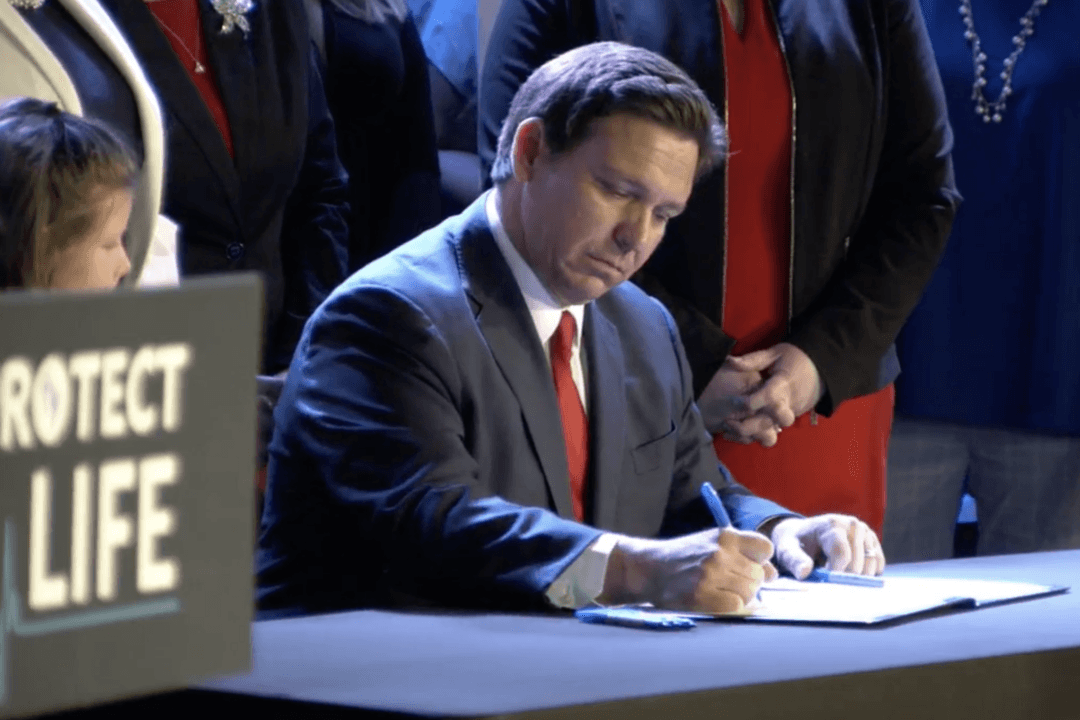Individuals who protest outside private residences in the state of Florida will now face a fine or prison time under a new bill signed on Monday by Gov. Ron DeSantis.
The Republican governor signed the bill, known as HB 1571, shortly after protests erupted outside the homes of Supreme Court justices in the wake of the leaked majority draft opinion indicating that the Roe v. Wade decision would be struck down.




